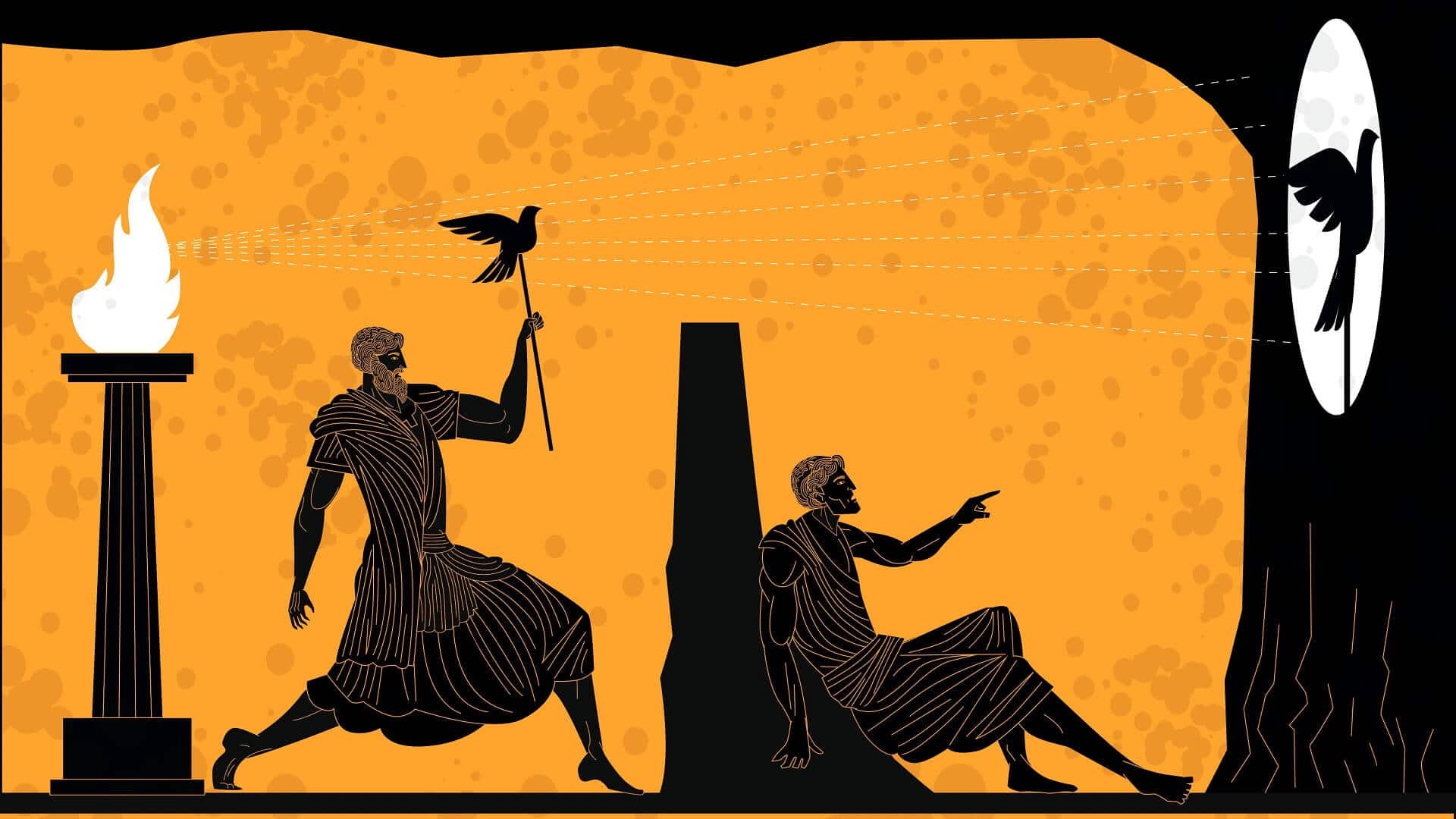How often do you look down at your hands and question, “Are these flesh? Or are they a string of complex mathematical equations?” Probably never, because that’s ridiculous. Of course, they are flesh. Or maybe they aren’t?….continue reading to discover why they are far more likely to be equations.
Empirically speaking reality is whatever an individual perceives it to be with their senses. If you see the color purple then the object is purple. However, simulation theory proposes a hypothesis that transcends the bounds of our five human senses. Simulation theory is a sort of spin-off from Plato’s “Allegory of the Cave” in which the ancient Greek philosopher describes a situation where a group of humans is living life through the lens of shadows being projected on a wall from the light of a fire. They believe that their world is a two-dimensional one until one day a single person breaks off from the group and stares directly at the fire. This person has enlightenment where they come to grips with the fact that their whole two-dimensional life was merely a facade within a more complex three-dimensional universe. This story is meant to provoke thoughts that challenge the authenticity of existence and push our minds to add pieces into the complex puzzle of reality.

In essence, simulation theory is the idea that there are innumerable digital realities within other realities, all residing within a base reality. For example, say someone named John created a video game so complex that the characters within the game were so advanced they perceived themselves to be sentient. Then the characters in John’s gaming world would believe they are real. Now take it a step further and imagine that eventually, the characters within John’s gaming world became so advanced that they could mimic reality using their own technology, creating their own ‘sentient’ characters within a new universe that would itself preside within John’s gaming world. So in other words, you would have John’s reality as the base universe and then John’s gaming world as the secondary reality, and lastly John’s character’s character’s world as a tertiary reality. But who says it would end there? Each of these three realities could simulate infinite other realities, and then all of those realities could each simulate infinite realities. This would create a never-ending loop of digitized realities all made up of highly complex computer code. New York University philosophy professor David Chalmers has described the being responsible for this hyper-realistic simulation we may or may not be in as a “programmer in the next universe up,” perhaps one we mortals might consider a god of some sort, though not necessarily in the traditional sense. “They may just be a teenager,” Chalmers said, “hacking on a computer and running five universes in the background…but it might be someone who is nonetheless omniscient, all-knowing, and all-powerful about our world.”
So you may be thinking “That’s great and all but is it really possible?” and the answer is YES…sort of. Think of it this way, if the technology exists to simulate cognizant life forms then it is possible. So that would mean all we need is such technology to prove this hypothesis, but can we obtain machinery magical as that? If you imagine human knowledge progressing at any rate at all then yes. Say that right now we are progressing at one technological progression point per year and at that rate, we will achieve full simulated reality in one thousand years. Then that would mean even if we slowed progress to one-tenth what it is now we will nonetheless reach full simulation in just ten thousand years. You could do similar calculations for any rate of progression. If it proves possible to simulate reality then that would instantly mean we are most likely just one of the infinite realities within a different base reality. As long as the human race continues to exist and progress then we are almost certainly a simulation. The chances of ourselves being the base reality are slim to none. What if we are not creators but rather creations?
Of course, I have no authority over whether our lives are a simulation. The original theory was proposed by Swedish philosopher Nick Bostrom and involves many layers of intricate math including string theory. There is a tremendous amount of information about this theory that cannot be explained on this blog. If you would like to learn more about the elaborate thoughts that comprise simulation theory I would recommend looking into the following:
Nick Bostrom: The Simulation Arguement
David Chalmers: The Matrix As Metaphysics
Elon Musk: We’re Probably Living In A Simulation
Stephen Hawking: Taming The Multiverse
One reason we may not be a simulation: The Fermi Paradox
